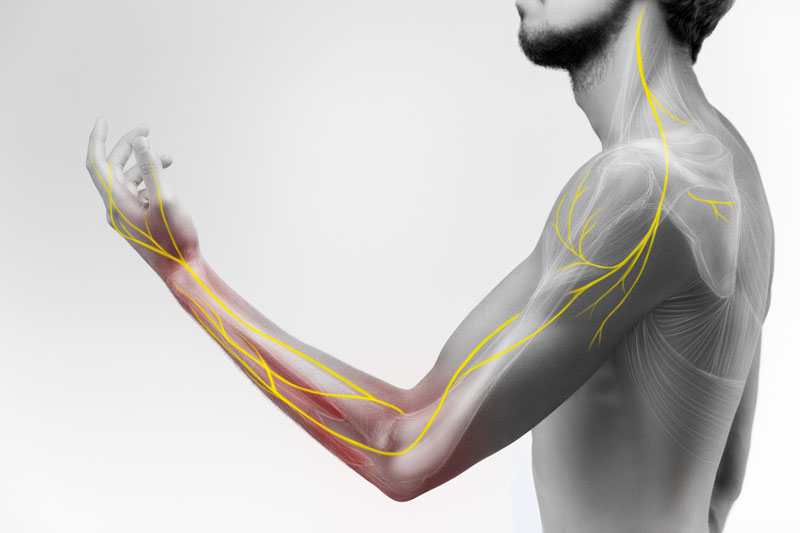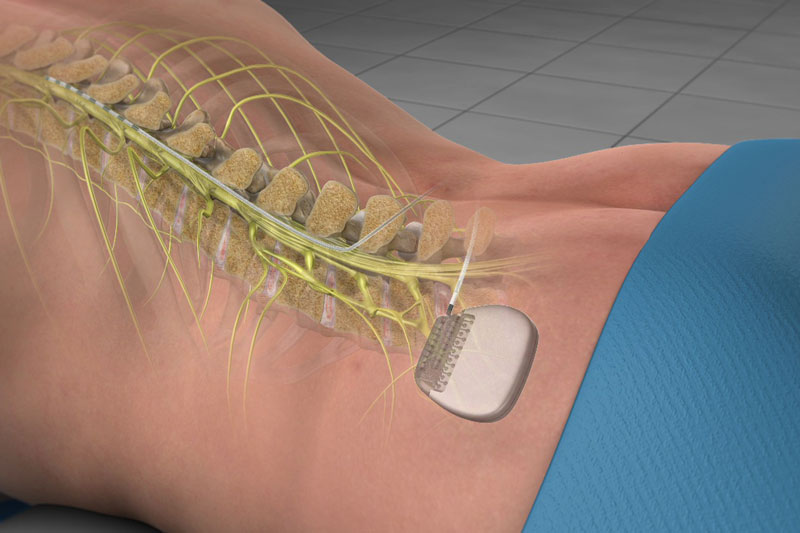Medical Exercise Consultations: A medical exercise consultation is a specialized service to assess an individual’s physical condition and design a customized exercise program tailored to their specific medical needs and fitness goals. This consultation bridges the gap between medical care and exercise prescription, ensuring that exercise is safe and effective for individuals with various medical conditions or unique requirements.
Functional Movement Analysis: Functional movement analysis is a comprehensive assessment and evaluation of an individual’s movement patterns and biomechanics to identify any functional limitations, imbalances, or dysfunctions that may affect their daily activities, sports performance, or overall quality of life.
Medication Management: Medication management involves the judicious and appropriate use of medications and strategies to effectively manage pain and various medical conditions. When at all possible, opioids are avoided, however we understand that these medications are occasionally needed for certain conditions.
At Ponte Vedra Spine and Pain, our mission is to provide compassionate, patient-centered care to residents in Ponte Vedra and the surrounding areas. We are committed to helping you find relief from pain so that you can lead a healthier and more active life. Our experienced team utilizes the latest techniques and technologies to ensure you receive the most effective and minimally invasive treatments available. Contact us today to schedule a consultation and take the first step towards a pain-free future.
What Are the Specialized Services You Offer?

Why Are Your Specialized Services Performed?
Functional Movement Analysis
Functional movement analysis is performed for several important reasons:
1. Injury Prevention: Identifying movement dysfunctions or limitations can help prevent injuries, particularly in athletes or individuals engaged in physical activities. By addressing these issues, we can design targeted exercise and training programs to reduce the risk of injuries.
2. Improved Athletic Performance: Athletes, including professionals and amateurs, use functional movement analysis to enhance their performance. By optimizing movement patterns, athletes can improve their agility, strength, and overall athletic abilities.
3. Rehabilitation: Functional movement analysis is integral to physical therapy and rehabilitation programs. It helps healthcare providers create individualized treatment plans to restore mobility and function after injuries or surgeries, such as recovering from a sports injury or joint replacement.
4. Pain Management: Understanding movement dysfunctions can be crucial for individuals dealing with chronic pain conditions. Correcting these dysfunctions through tailored exercises can help alleviate pain and improve overall quality of life.
5. Postural Correction: Poor posture can lead to a variety of musculoskeletal problems and discomfort. Functional movement analysis can identify postural issues and guide interventions to improve posture, reducing the risk of pain and injury.
6. Occupational Health: Functional movement analysis can be used in occupational health settings to assess the movement patterns of workers in physically demanding jobs. Identifying and addressing ergonomic issues can prevent workplace injuries.
7. Fitness Training: Personal trainers and fitness professionals use functional movement analysis to design exercise programs tailored to an individual’s specific needs and goals, enhancing fitness outcomes while minimizing the risk of injury.
8. Health and Wellness: Functional movement analysis is also used in general health and wellness assessments. It can provide insights into an individual’s physical fitness, help set fitness goals, and track progress over time.
9. Patient Education: Functional movement analysis allows healthcare providers to educate patients about their movement patterns and the importance of proper biomechanics in preventing injuries and maintaining overall health.
In summary, functional movement analysis plays a critical role in various aspects of healthcare, from injury prevention and rehabilitation to optimizing athletic performance and enhancing overall well-being. It helps identify movement dysfunctions, guiding us in developing targeted interventions to address these issues and improve the quality of life for individuals of all ages and activity levels.
Medical Exercise Consultations
A medical exercise consultation is performed for several important reasons:
Individualized Exercise Planning: It helps create exercise plans tailored to an individual’s unique needs, medical history, and fitness goals. This personalized approach ensures that exercises are safe, effective, and aligned with the individual’s specific health conditions or limitations.
2. Injury Prevention: By assessing an individual’s current physical condition, movement patterns, and potential risk factors, a medical exercise consultation can help identify and address imbalances or weaknesses that may contribute to injuries during physical activities or sports.
3. Chronic Disease Management: For individuals with chronic health conditions such as diabetes, heart disease, or arthritis, a medical exercise consultation can provide guidance on exercise regimens that can help manage these conditions and improve overall health.
4. Post-Rehabilitation: After recovering from an injury, surgery, or medical procedure, a medical exercise consultation can aid in the transition from formal rehabilitation to ongoing fitness and wellness. It ensures that exercise programs are tailored to support continued recovery and prevent re-injury.
5. Optimizing Health and Fitness: For individuals looking to improve their overall fitness, strength, flexibility, or athletic performance, a medical exercise consultation can provide expert guidance to design efficient and goal-oriented exercise routines.
6. Weight Management: Medical exercise consultations often play a role in weight management programs. They help individuals develop exercise plans that support weight loss, muscle gain, and improved body composition.
7. Functional Improvement: The consultation helps individuals enhance their functional abilities and address daily challenges, particularly important for older adults looking to maintain independence and quality of life.
8. Psychological and Emotional Well-Being: Exercise consultations consider the mental health aspects of fitness. Exercise has well-documented benefits for reducing stress, anxiety, and depression, and a tailored exercise plan can support mental well-being.
9. Safety and Risk Assessment: Healthcare providers use these consultations to evaluate an individual’s readiness for certain exercises and identify any potential risks or contraindications, ensuring exercise plans are safe and suitable.
10. Education and Empowerment: A significant aspect of medical exercise consultations is patient education. Individuals learn about the importance of physical activity, proper exercise techniques, and how to take charge of their own health and fitness.
11. Lifestyle Integration: These consultations help individuals integrate exercise into their daily lives and routines, making it a sustainable and lifelong practice.
12. Motivation and Accountability: Having a structured exercise plan and ongoing support from a healthcare provider can enhance motivation and accountability, helping individuals stay committed to their fitness goals.
13. Long-Term Health: Ultimately, medical exercise consultations contribute to long-term health and well-being by promoting regular physical activity, which has numerous health benefits and reduces the risk of chronic diseases.
In summary, a medical exercise consultation serves as a bridge between healthcare and fitness, offering expert guidance on exercise planning, safety, and overall health improvement. It plays a vital role in preventing injuries, managing chronic conditions, and optimizing physical and mental well-being.
Medication Management
Medication management is performed for several important reasons:
1. Effective Treatment: Medication management ensures that patients receive the right medications to effectively manage their specific medical conditions.
2. Optimizing Medication Use: Medication management involves careful consideration of the type, dosage, frequency, and duration of medications. It ensures that patients receive the most appropriate and effective treatment regimen for their condition.
3. Safety: Medication management helps prevent medication errors, adverse drug reactions, and interactions between multiple medications. It ensures that patients receive medications that are safe and compatible with their overall health and other medications they may be taking.
4. Individualized Care: We consider each patient’s unique medical history, allergies, and preferences when managing medications. This individualized approach helps tailor treatment to the patient’s needs and circumstances.
5. Dosing Adjustments: Medication management includes monitoring and adjusting medication dosages as needed. This is particularly important for medications with a narrow therapeutic window, where small changes in dosage can have a significant impact on efficacy and safety.
6. Monitoring Side Effects: We closely monitor patients for potential side effects of medications. Early detection allows for timely intervention and adjustments to prevent adverse reactions.
7. Compliance and Adherence: Medication management includes educating patients about their medications, ensuring they understand how to take them, and addressing any concerns or barriers to adherence. This promotes patient compliance, leading to better treatment outcomes.
8. Optimal Outcomes: Proper medication management contributes to better health outcomes, including symptom relief, disease control, prevention of complications, and improved quality of life for patients.
9. Polypharmacy Management: For patients taking multiple medications (polypharmacy), medication management helps prevent drug interactions, reduce the risk of adverse effects, and streamline the medication regimen for ease of use.
10. Preventative Care: In some cases, medications are prescribed for preventive purposes, such as before surgery. Medication management ensures the timely administration of these preventive measures.
In summary, medication management is performed to ensure the safe, effective, and appropriate use of medications in healthcare. It is a critical component of patient care, promoting optimal treatment outcomes, patient safety, and overall health and well-being.
How Are Your Specialized Services Performed?
Medical exercise consultation / Functional movement Analysis
Medical exercise consultations and Functional Movement Analysis are performed in a very similar way. This is a comprehensive process designed to assess an individual’s physical health, fitness level, medical history, and specific goals in order to develop a tailored exercise program. Here’s how these services are typically performed:
1. Initial Assessment: The consultation begins with a detailed review of the individual’s medical history, including any existing medical conditions, injuries, surgeries, medications, and lifestyle factors. This information helps us gain a comprehensive understanding of the individual’s health status.
2. Goal Setting: The individual discusses their fitness goals and expectations with us. These goals can range from improving cardiovascular fitness and strength to managing chronic conditions or preparing for a specific athletic event.
3. Physical Evaluation: A thorough physical examination is conducted to assess the individual’s current fitness level, including measurements of weight, height, body composition, flexibility, strength, cardiovascular fitness, and other relevant parameters. This evaluation helps identify any physical limitations, muscular imbalances, or areas that require specific attention.
4. Functional Movement Analysis: Functional movement tests are performed to assess how well the individual’s body moves and functions during various activities. These tests help identify movement dysfunctions, weaknesses, and areas of improvement.
5. Individualized Exercise Plan: Based on the gathered information, the healthcare provider or exercise specialist designs a personalized exercise program. This program includes specific exercises, duration, intensity, and frequency tailored to the individual’s abilities and goals.
6. Education: The individual receives guidance on exercise techniques, proper form, and safety considerations. They learn how to perform exercises correctly to prevent injuries and maximize benefits.
7. Exercise Prescription: The exercise plan may encompass a variety of activities, such as cardiovascular exercises, strength training, flexibility exercises, and balance training. The prescription may also include recommendations for warm-up and cool-down routines.
8. Monitoring and Follow-Up: The individual is scheduled for follow-up appointments to track progress, make necessary adjustments to the exercise plan, and address any questions or concerns. Regular monitoring helps ensure that the program remains effective and aligns with changing fitness goals.
9. Integration with Healthcare: If the individual has specific medical conditions or is on medication, the exercise plan is integrated with their overall healthcare strategy to ensure safety and effectiveness.
10. Motivation and Support: We serve as a source of motivation and support, helping the individual stay motivated and committed to their exercise regimen.
Overall, these services are a holistic approach to improving an individual’s physical health and well-being. It combines medical knowledge with fitness expertise to create a personalized exercise plan that promotes health, prevents injuries, and helps individuals achieve their fitness goals safely and effectively.
What To Expect After One of Our Specialized Services?
After meeting with us for one of these services, you can expect several things as you begin to implement your plan:
1. Exercise Program: You’ll have a specific exercise program tailored to your goals and needs. This program may include various types of exercises, such as cardiovascular workouts, strength training, flexibility exercises, and balance training. You’ll receive instructions on the exercises, including the number of repetitions, sets, duration, and intensity.
2. Motivation: You should feel motivated and inspired to start or continue your fitness journey. The exercise plan is designed to help you achieve your goals, and the guidance from the healthcare provider or exercise specialist can boost your confidence and enthusiasm.
3. Increased Awareness: You’ll likely have a better understanding of your body’s strengths and weaknesses, including any movement dysfunctions or imbalances identified during the consultation. This awareness can be empowering as you work on improving your physical health.
4. Education: You’ll be equipped with knowledge about proper exercise techniques, safety precautions, and the importance of consistency in your fitness routine. This education is valuable for preventing injuries and maximizing the benefits of your workouts.
5. Initial Discomfort: It’s common to experience some muscle soreness or fatigue, especially if you’re new to exercise or if your exercise routine has changed significantly. This discomfort is typically a sign that your muscles are adapting to the new demands placed on them.
7. Progress Tracking: You may be encouraged to keep track of your exercise sessions, noting the exercises performed, the duration, and any changes in weight lifted or distances covered. This tracking helps you monitor your progress and adjust your program as needed.
8. Follow-Up Appointments: Depending on the consultation plan, you may have follow-up appointments scheduled to review your progress, make adjustments to your exercise plan, and address any questions or concerns. These appointments are essential for ensuring that your program remains effective and aligned with your goals.
9. Self-Care: It’s important to practice self-care after your consultation. This includes getting adequate rest, staying hydrated, and maintaining a balanced diet to support your exercise routine and recovery.
10. Communication: You should feel comfortable communicating with us if you have any questions, experience any issues, or need guidance. Open and regular communication can help you stay on track and make necessary adjustments to your plan.
11. Consistency: Consistency is key to seeing improvements in your fitness and achieving your goals. Sticking to your exercise program and maintaining a regular workout schedule will be essential for long-term success.
Remember that progress may vary from person to person, and results may take time. Be patient with yourself and stay committed to your exercise plan. Over time, you should begin to experience the benefits of improved fitness, increased strength, enhanced flexibility, and better overall health and well-being.
Frequently Asked Questions About Our Specialized Services
Here are some frequently asked questions (FAQs) about medical exercise plans and functional movement analysis along with their answers:
1. Who can benefit from a medical exercise plan or functional movement analysis?
- Anyone can benefit from these plans, especially individuals with medical conditions, injuries, chronic diseases, or those looking to improve their overall health and fitness.
2. How is a medical exercise plan different from a regular fitness plan?
- A medical exercise plan is tailored to an individual’s unique health circumstances, including medical history and limitations. It is designed to promote safe and effective exercise while considering medical conditions or injuries.
4. What are the key components of a medical exercise plan?
- A medical exercise plan typically includes specific exercises, duration, intensity, frequency, and progression guidelines. It may encompass cardiovascular workouts, strength training, flexibility exercises, and balance training.
5. Is a medical exercise plan suitable for older adults?
- Yes, medical exercise plans can be particularly beneficial for older adults as they help improve mobility, prevent falls, manage chronic conditions, and maintain independence.
6. How do I get started with a medical exercise plan?
- To start a medical exercise plan, you can schedule a consultation with us. We will assess your health, discuss your goals, and design a customized plan for you.
7. Are medical exercise plans safe for individuals with medical conditions?
- Yes, medical exercise plans are designed to be safe for individuals with medical conditions. They take into account any contraindications or precautions related to exercise, ensuring that the plan is appropriate and beneficial.
8. Can a medical exercise plan help with weight management?
- Yes, medical exercise plans can be effective for weight management. They often include exercises that support weight loss, muscle gain, and overall body composition improvement.
9. How often should I follow my medical exercise plan?
- The frequency of exercise sessions varies based on your goals and fitness level. Typically, individuals aim for at least 3-5 days of exercise per week.
10. How can I track my progress with a medical exercise plan?
- You can track your progress by keeping a workout journal, noting exercises, repetitions, sets, weights, or distances covered. Additionally, regular follow-up appointments with us can help assess your progress.
11. Can I modify my medical exercise plan as I progress?
- Yes, medical exercise plans are meant to be adaptable. As you make progress and your goals change, we can adjust your plan to match your evolving needs.
12. Is nutritional guidance included in a medical exercise plan?
- While some medical exercise plans may include basic nutritional recommendations, more comprehensive dietary guidance is often provided by registered dietitians or nutritionists as part of a separate consultation.
Remember that the specific details of a medical exercise plan can vary based on individual needs and goals. It’s essential to consult with a healthcare provider or exercise specialist to create a plan that suits your unique circumstances and helps you achieve your desired outcomes safely and effectively.













